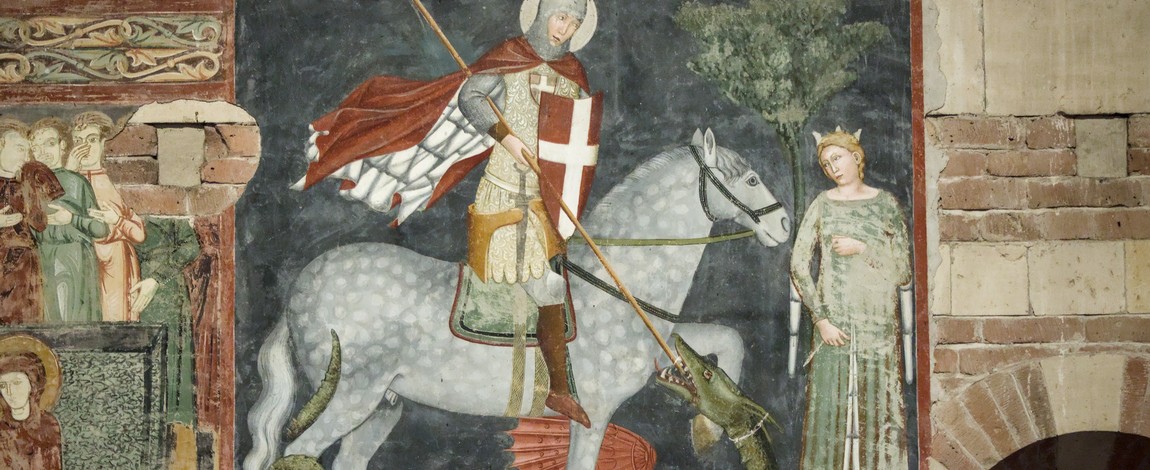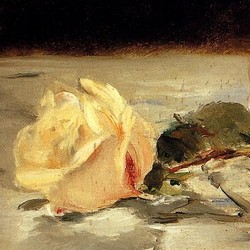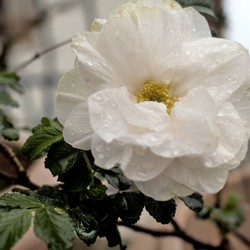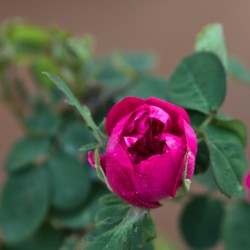
To coincide with Saint George's day, I'm posting on Tuesday this week. We need a rose for the Liederabend, don't we? This year, our musical rose arrives from Russia.
Anton Rubinstein's best-known songs (not really well known, in fact) are those that form the cycle Zwölf Lieder von Mirza-Schaffy, composed in 1854 and also known as Persische Liebeslieder [Persian Love Songs]. The poet's name is included in the cycle: Mirza Shafi; born in Ganja between 1792 and 1804 and died in Tbilisi in 1852, he is considered one of the most important intellectuals in Azerbaijan.
His poetry reached Central Europe through the German poet, professor, and translator Friedrich Bodentstedt, who after returning from a long stay in Tbilisi published in 1851 the book Tausand und ein Tag im Orient [Thousand and One Days in the East], which included the translations of several poets whose work he had known at the time. At the request of his publisher, he published one year later a volume of poetry exclusively by Shafi, who had been his teacher of Azerbaijani and Persian; it collected the poems already published and many more. This volume achieve significant success: thirty years later, a hundred editions had been made, and in 1920, one hundred and fifty. The good reception went beyond the German area, and Lieder des Mirza Schaffy was translated into many languages, including English. The composers were not stranger to this fever, and the poems were set to music even more than Goethe's Western-Eastern Divan or Rückert's Östliche Rosen.
This week, our song is the no. 4 of the Zwölf Lieder von Mirza-Schaffy, Es hat die Rose sicht beklagt. It is a very short poem, of only two stanzas of three verses. When we listen to the song, we can be surprised by the fact that orientalism is very present in its music, a circumstance that is not common in Lied. We should remember that, despite his surname, his training, and his aesthetics that remind us of Beethoven, Schumann or Mendelssohn, Rubinstein was a Russian and he also knew very well the music that was made in his country; for example, that of Mikhail Glinka, who a few years ago had introduced Russian musical orientalism. So we have this beautiful sample of Russian song infused with German tradition. I hope you will like the exotic rose we have this year, performed by Hélène Lindqvist and Phillip Vogler.
Have a wonderful Sant Jordi Day!
Es hat die Rose sich beklagt,
Daß gar zu schnell der Duft vergehe,
Den ihr der Lenz gegeben habe --
Da hab' ich ihr zum Trost gesagt,
Daß er durch meine Lieder wehe
Und dort ein ew'ges Leben habe.
The rose has complained
That the scent, given to her by springtime,
Disappears all too quickly --
Thereupon I comforted her by saying
That it wafts through my songs
And has an eternal life there.
(translation by Sharon Krebs)
















